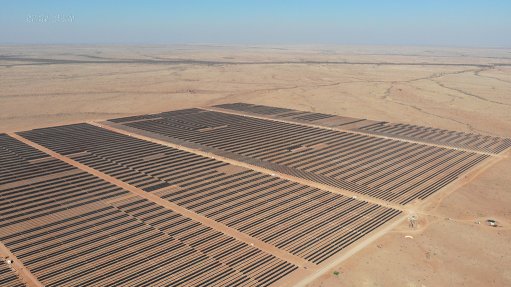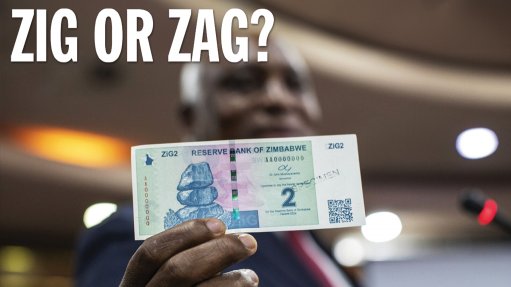Despite free trade area breakthrough, ‘United States of Africa’ still a pipe dream
African leaders have finally launched a long-awaited free-trade agreement seven years after the concept was first agreed, but political integration as envisaged by the continent’s founding fathers decades ago still seems a pipe dream.
There has been a good deal of upbeat talk about how the free movement of goods and services will drive Africa’s economic growth. But politicians and citizens have shown little appetite for the free movement of people, such as in the European Union, preferring stricter border controls mainly to protect local jobs.
Last month, South African President Cyril Ramaphosa said the African Continental Free Trade Agreement (AfCFTA) fulfilled a dream of an integrated continent as foreseen when the Organisation of African Unity was created in 1963.
First espoused by Jamaican-born political activist Marcus Garvey in the early years of the 20th century, the concept of a United States of Africa had an enthusiastic champion in former Libyan leader Muammar Gaddafi, who pushed for an African unity government for years, with a single military force, currency and passport.
Gaddafi argued a union was the only way the continent would progress without Western interference. But he found little support from fellow African leaders, who felt it was not practical and were reluctant to yield sovereignty.
The concept died a natural death after Gaddafi’s assassination in a bloody 2011 uprising despite efforts to revive it by former Senegalese President Abdoulaye Wade and Zimbabwe’s Robert Mugabe, who was himself forced to step down in 2017 by the military.
In the most glaring example of resistance to one big, borderless Africa, Ramaphosa’s government is under pressure from opposition politicians and poor South Africans to tighten border security and keep out foreigners, who have become the target of rising anger over a lack of jobs and basic services like housing, water and healthcare.
Clashes earlier this month in the economic capital Johannesburg between police and mainly foreign street vendors over the confiscation of counterfeit goods have fanned resentment.
Despite being no strangers to scuffles with police during numerous service delivery protests, many South Africans bristled at what they called a provocative lack of respect by foreigners for the country’s laws.
On Wednesday night, mobs ran amok in Johannesburg’s sprawling Soweto township, looting shops owned by mostly African immigrants in what they called a retaliation for attacks on police.
But government officials acknowledged the attacks were largely a sign of anger over chronic unemployment and poverty, with immigrants who live and operate businesses in such communities being easy scapegoats.
Last week, Ethiopia said its embassy in Pretoria was working with South African authorities to secure the release of hundreds of its nationals caught up in a crackdown on “illegal” immigrants, despite their having valid permits to live and work in the country.
There has been a stronger pushback in Nigeria, where students recently shut down the local offices of South African companies over what they slammed as xenophobic attacks against their compatriots.
In response, South Africa’s International Relations Minister Naledi Pandor chided student protesters calling for the expulsion of South Africans living in Nigeria.
“The protests are said to be in response to alleged killings of Nigerians by South Africans. As you are aware, these allegations are devoid of truth, reckless, and unwarranted," Pandor told journalists.
Elsewhere, East African neighbours Rwanda and Uganda have traded insults for months, with the former closing the border crossing between the two countries in February over similar charges of xenophobia.
Rwanda barred its citizens from travelling to Uganda, accusing Kampala of illegally arresting, harassing and torturing its nationals.
Reports in June said three of Ugandan President Yoweri Museveni’s grandchildren were pulled from basketball teams participating in a tournament in Kigali.
Relations between Nigerian and Ghana have been testy on occasion. Nigeria’s top diplomat in Accra recently warned Ghana’s media that reporting every little misdemeanour committed by his countrymen resident there could damage relations between the two countries.
Regardless of the political stand-offs, African leaders are optimistic about the free trade agreement, which covers a market of more than 1.2-billion people in 55 countries with a combined gross domestic product of more than US$3.2-trillion.
If successful, AfCFTA would be the world’s largest free trade area since the formation of the World Trade Organization.
Estimates from the Economic Commission for Africa suggest it has the potential to boost intra-African trade by 52.3 percent by eliminating import duties on 90 percent of goods.
Comments
Press Office
Announcements
What's On
Subscribe to improve your user experience...
Option 1 (equivalent of R125 a month):
Receive a weekly copy of Creamer Media's Engineering News & Mining Weekly magazine
(print copy for those in South Africa and e-magazine for those outside of South Africa)
Receive daily email newsletters
Access to full search results
Access archive of magazine back copies
Access to Projects in Progress
Access to ONE Research Report of your choice in PDF format
Option 2 (equivalent of R375 a month):
All benefits from Option 1
PLUS
Access to Creamer Media's Research Channel Africa for ALL Research Reports, in PDF format, on various industrial and mining sectors
including Electricity; Water; Energy Transition; Hydrogen; Roads, Rail and Ports; Coal; Gold; Platinum; Battery Metals; etc.
Already a subscriber?
Forgotten your password?
Receive weekly copy of Creamer Media's Engineering News & Mining Weekly magazine (print copy for those in South Africa and e-magazine for those outside of South Africa)
➕
Recieve daily email newsletters
➕
Access to full search results
➕
Access archive of magazine back copies
➕
Access to Projects in Progress
➕
Access to ONE Research Report of your choice in PDF format
RESEARCH CHANNEL AFRICA
R4500 (equivalent of R375 a month)
SUBSCRIBEAll benefits from Option 1
➕
Access to Creamer Media's Research Channel Africa for ALL Research Reports on various industrial and mining sectors, in PDF format, including on:
Electricity
➕
Water
➕
Energy Transition
➕
Hydrogen
➕
Roads, Rail and Ports
➕
Coal
➕
Gold
➕
Platinum
➕
Battery Metals
➕
etc.
Receive all benefits from Option 1 or Option 2 delivered to numerous people at your company
➕
Multiple User names and Passwords for simultaneous log-ins
➕
Intranet integration access to all in your organisation


















